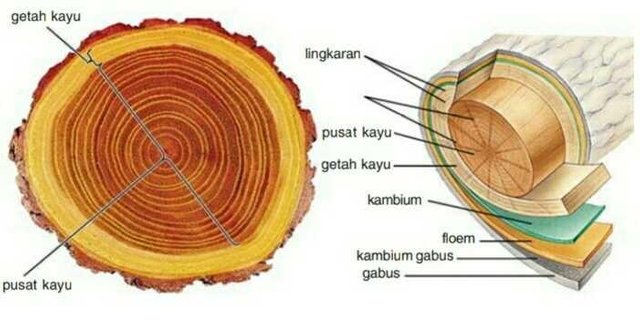Physiology Germination and secondary growth
Between the xylem and the phloem there is a cambium whose cell-
the cell is actively dividing. In dicotyledonous plants, xylem tissue
and the primary phloem is present in the living stems and roots
during a relatively short period. Then, its function
taken over by the resulting secondary vessel network
by the active cambium splitting.
The outer cambium growth forms a phloem
secondary, and inward form a secondary xylem
so that the stem of the plant grows larger. Activity
the cambium forming these secondary xylem and phloem
called secondary growth. All networks are in
next to the cambium is called wood, while on the outside
cambium is called skin or papagan.
The formation of xylem and phloem secondary to the stem
occurs due to the activity of the cambium influenced by the seasons.
If environmental conditions are less favorable, then the activity
the cambium becomes so low that the xylem and phloem are secondary
produced little. On the contrary, in the rainy season,
this cambium activity will increase. Activity difference
the cambium will produce a trace on the so-called stem
circle of the year.
